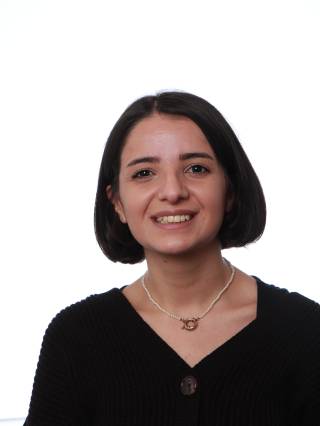Project Leader
Élise Féron
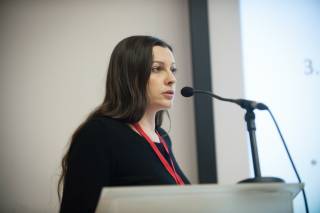 Élise Féron is the PI of the Re-(E)MBody project. She is a Professor of Peace and Conflict Studies at Ulster University, as well as the Director of INCORE (International Conflict Research Institute). She is also an associated senior research fellow at the Tampere Peace Research Institute, Tampere University in Finland. Her main research interests include feminist peace research, diaspora politics, and the multiple entanglements between conflict, violence, and peace, including the long-term consequences of disappearances. She has three decades of experience researching these issues in Northern Ireland, Eastern Congo, Burundi, Rwanda, Madagascar, the South Caucasus and Cyprus, among other places. She is an editor-in-chief of the Journal of Disappearance Studies (Bristol University Press) and serves on the editorial boards of other journals. She is also a co-editor of the book series, Routledge Advances in Feminist Peace Research. She has notably co-edited the Routledge Handbook of Feminist Peace Research(2021) and co-authored, with Tarja Väyrynen, Feminist Peace Research: An Introduction (Routledge, 2024).
Élise Féron is the PI of the Re-(E)MBody project. She is a Professor of Peace and Conflict Studies at Ulster University, as well as the Director of INCORE (International Conflict Research Institute). She is also an associated senior research fellow at the Tampere Peace Research Institute, Tampere University in Finland. Her main research interests include feminist peace research, diaspora politics, and the multiple entanglements between conflict, violence, and peace, including the long-term consequences of disappearances. She has three decades of experience researching these issues in Northern Ireland, Eastern Congo, Burundi, Rwanda, Madagascar, the South Caucasus and Cyprus, among other places. She is an editor-in-chief of the Journal of Disappearance Studies (Bristol University Press) and serves on the editorial boards of other journals. She is also a co-editor of the book series, Routledge Advances in Feminist Peace Research. She has notably co-edited the Routledge Handbook of Feminist Peace Research(2021) and co-authored, with Tarja Väyrynen, Feminist Peace Research: An Introduction (Routledge, 2024).
Project Members
Stipe Odak
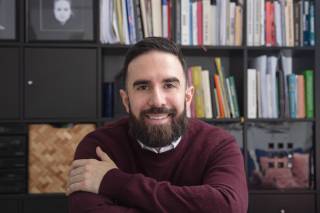
Anush Petrosyan
Anush Petrosyan is one of the project members of the Re-(E)MBody Project. She is a Doctoral Researcher at Tampere Peace Research Institute (TAPRI), Tampere University in Finland. Her research interests are memory in post-conflict reconciliation, memorialization and peace processes, and the role of intergenerational transmission of memory in post-conflict societies. Her doctoral research is titled “Reconstructing Life in Exile: Sensory Ethnography of Memory and the Search for Belonging among Armenians of Nagorno-Karabakh” while within the Re-(E)MBody Project she investigates the issue of the missing persons in the context of the Armenian – Azerbaijani conflict. From 2022 – 2024 Anush served as a Board Member at the European Peace Research Association (EuPRA). She is an Editorial Board Member for Journal of Disappearance Studies.
Vadim Romashov
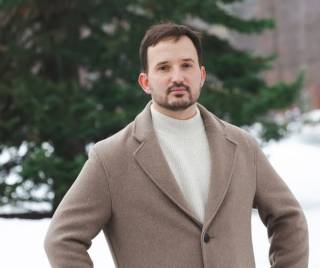 Vadim Romashov is a postdoctoral researcher at the Department of Social Sciences, University of Eastern Finland. He holds a Doctor of Social Sciences degree in Peace and Conflict Studies from Tampere University. His current research explores everyday insecurities of war-affected migrants, while his general research covers everyday practices of living together with differences, the problems of international peacebuilding, and the multifaceted societal effects of militarization. Vadim teaches courses on peace and conflict at the University of Helsinki and the University of Eastern Finland. He has been involved in various peace-promoting initiatives in the post-Soviet region and Finland as a dialogue facilitator, peace educator, and editor for collaborative research and multimedia projects. Vadim is the book review editor of the Journal of Disappearance Studies (forthcoming from Bristol University Press). For the Re-(E)MBody Project, he will study the implications of Finland-Russia cooperation on the issue of lost soldiers in the Second World War for reconciliation between the two countries.
Vadim Romashov is a postdoctoral researcher at the Department of Social Sciences, University of Eastern Finland. He holds a Doctor of Social Sciences degree in Peace and Conflict Studies from Tampere University. His current research explores everyday insecurities of war-affected migrants, while his general research covers everyday practices of living together with differences, the problems of international peacebuilding, and the multifaceted societal effects of militarization. Vadim teaches courses on peace and conflict at the University of Helsinki and the University of Eastern Finland. He has been involved in various peace-promoting initiatives in the post-Soviet region and Finland as a dialogue facilitator, peace educator, and editor for collaborative research and multimedia projects. Vadim is the book review editor of the Journal of Disappearance Studies (forthcoming from Bristol University Press). For the Re-(E)MBody Project, he will study the implications of Finland-Russia cooperation on the issue of lost soldiers in the Second World War for reconciliation between the two countries.
Karstein Volle
 Karstein Volle (b.1974) graduated as a painter from the National Academy of Fine Arts, Oslo in 1999. Has since released fifteen collections of his comics in multiple languages. As an illustrator delivered work for most major publications and broadcasters in Norway and Finland. Was nominated for best Newspaper Illustration 2022 for a piece in Bergens Tidende, his 2023 graphic novel I Love Everyone inspired DN to call him ‘Norway’s most original and unpredictable comic artist’, the 2021 satirical graphic novel Likbilen was called a ‘seven mile leap for Norwegian sci-Fi’ and was nominated for Comic of the Year 2021.
Karstein Volle (b.1974) graduated as a painter from the National Academy of Fine Arts, Oslo in 1999. Has since released fifteen collections of his comics in multiple languages. As an illustrator delivered work for most major publications and broadcasters in Norway and Finland. Was nominated for best Newspaper Illustration 2022 for a piece in Bergens Tidende, his 2023 graphic novel I Love Everyone inspired DN to call him ‘Norway’s most original and unpredictable comic artist’, the 2021 satirical graphic novel Likbilen was called a ‘seven mile leap for Norwegian sci-Fi’ and was nominated for Comic of the Year 2021.
Associated Researchers
Roddy Brett
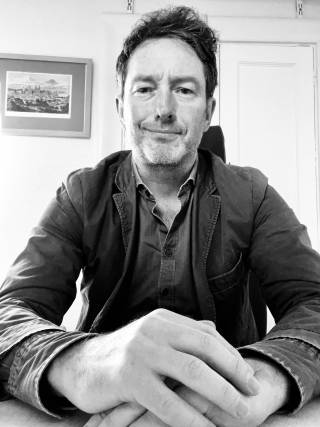
Roddy Brett is a Professor of Peace and Conflict Studies and Director of the Global Insecurities Centre in the School of Sociology, Politics and International Studies at the University of Bristol. Trained as an anthropologist and political scientist, his work focuses on the causes, consequences and legacy of political violence (genocide, internal armed conflict, civil war) and the trajectories of war to peace transition. His research focuses specifically on the complex and often contradictory ways in which peace negotiations, post-conflict recovery/peacebuilding interventions and transitional justice mechanisms shape post-accord states and societies. He has comparative regional expertise in Latin America, also broadening work towards Ukraine, Lebanon and Northern Ireland. Professor Brett has combined his scholarly career with work as a senior practitioner. During thirteen years living in Latin America, he acted as Advisor to diverse United Nations agencies and as Advisor on Indigenous Affairs to the Norwegian Embassy in Guatemala. He worked with the Centre for Human Rights Legal Action in Guatemala, as a member of the original team that prepared the evidence against former dictator General Ríos Montt, leading to his conviction in May 2013 for eighty years for genocide and crimes against humanity. In 2015, he led a UN investigation into the role of the victims’ delegations during the Santos-FARC-EP peace process. He has just finished a large ESRC project exploring the how people deploy strategies to get on with life at the micro-/hyper-local level after egregious violence in Colombia, Lebanon and Northern Ireland. He is the founder of the network, FuturePeace, which is participating in the United Nations’ consultation process aimed at shaping the Pact for the Future. His most recent monograph is Victim-Centred Peacemaking: Colombia’s Santos-FARC-EP Peace Process (Bristol University Press, 2024).
Sabina Čehajić-Clancy
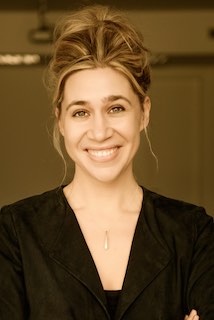
Sabina Čehajić-Clancy received her Ph.D. in Psychology from the University of Sussex (United Kingdom) and her post-doctoral training at Stanford University (USA). Currently she works as an Associate Professor of Social Psychology at Stockholm University (Sweden). Her research group aims to understand psychological processes of improving intergroup relations in societies affected or threatened by conflict. Using experimental methods across different social contexts, she studies attitudes and emotions in order to optimize interventions that promote positive social change. To date, she has published over fifty articles, several books and book chapters and delivered around hundred invited talks at most prominent psychology departments around the world including non-academic audiences such as the Nobel Forum, UN Headquarters and International Peace and Security Institute. She also acts as an Associate Editor for the APA journal on Peace and Conflict.
Philip Gamaghelyan
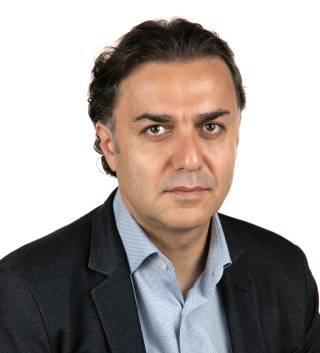
Philip Gamaghelyan, PhD, is an associate professor at the Joan B. Kroc School of Peace Studies at the University of San Diego, where he teaches courses in conflict analysis and resolution, mediation, media, nationalism & conflict, among others. He is also a conflict resolution scholar-practitioner, the co-founder and board member of the Imagine Center for Conflict Transformation, an editor at the Caucasus Edition: Journal of Conflict Transformation (www.caucasusedition.net). He worked in the post-Soviet states, as well as Turkey, Syria, and other conflict regions engaging policymakers, journalists, educators, social scientists, and other discourse-creating professionals. His research is focused on the politics of memory in conflict contexts and on critical re-evaluation and design of conflict resolution interventions.
Laura Huttunen
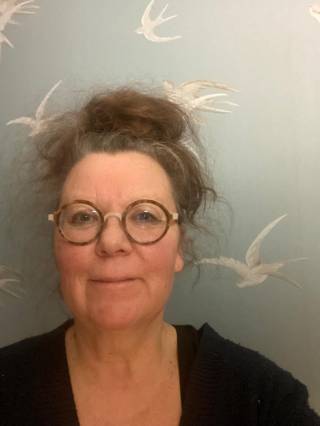
Laura Huttunen is Professor of Social Anthropology at Tampere University, Finland. She has worked on issues of migration and transnational communities, and she has conducted long-term ethnographic research among the Bosnian diaspora. For the last fifteen years, she has focused on issues related to missing and disappeared persons. Her research projects include one focused on the question of missing and disappeared persons in Bosnia-Herzegovina, and the more recent research project ‘Governance and Grieving: Missing Migrants and Emerging Politics’ (DiMIg) funded by the Academy of Finland, focused on disappearances in migratory contexts. She is interested repercussions of disappearances both in the intimate and in the political spheres, as well as in the social and political afterlives that the missing and disappeared give rise to.Her recent publications include ‘An Anthropology of disappearance: Politics, intimacies and alternative ways of knowing’ (Berghahn Books 2023), edited with Gerhild Perl, and ‘Missing persons, political landscapes and cultural practices: Violent absences, haunting presences’ (Manchester University Press 2025).
Valerie Rosoux
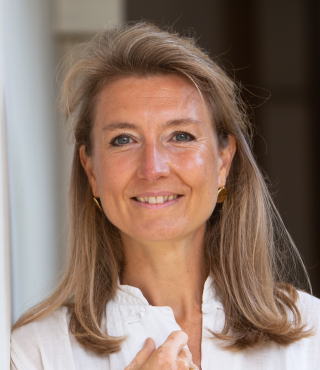
Valerie Rosoux is a Research Director at the Belgian Fund for Scientific Research (FNRS). She teaches International Negotiation, Politics of Memory, and Transitional Justice at UCLouvain (Belgium). She has a Licence in Philosophy and a Ph.D. in Political Sciences. She is a member of the Belgian Royal Academy. Since 2021, she is a Max Planck Law Fellow.
Wouter Sinaeve
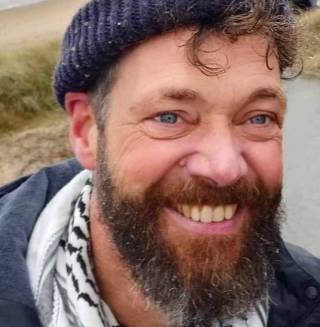
Wouter Sinaeve is an educator at the In Flanders Fields Museum and author of (among others) “Child of the Westhoek”. Grew up in a village near Ypres, and was brought up on the story of the great War. Not because it was talked about so often, on the contrary, but because this story is still present today. Everywhere you walk in this region, you bump into the silent witness, each of which in itself shows what war is all about: ‘loss’. The impact of ‘loss’ is no stranger to Wouter, he lost his dad to cancer when he was barely 4 years old. In May 2025, the documentary ‘Missing and Found, a youth view at World War 1 archaeology’ will be released. In it, 18 youngsters fathom the story and the emotional impact from the discovery of human remains to possible identification and reburial. Fact is that human remains from the First World War are still being discovered, alongside large quantities of unexploded ammunition. In some cases, people still manage to give those human remains a name. In some cases, people are told that their relative has been found. In some cases, the ‘loss’ takes, after more than 100 years, concrete shape.
Tuomas Tepora

Dr. Tuomas Tepora is currently a Senior Research Fellow at the Research Council of Finland’s Centre of Excellence in the History of Experiences (HEX) at Tampere University. He has previously held positions and fellowships at the University of Helsinki, the Helsinki Collegium for Advanced Studies, Queen Mary University of London, and the Max Planck Institute for Human Development in Berlin. His research focuses on the history of emotions and experience, as well as the commemoration and cultural history of war, particularly in relation to 20th-century conflicts in Finland and the Baltic Sea region.
Since 2021, Dr. Tepora has been leading a project titled “A Dim Light of Dawn: Finnish Post-Cold War Experiences Between East and West, 1989–1995,” funded by the Research Council of Finland. This project examines post-Cold War grassroots experiences of uncertainty during the geopolitical, economic, and social changes of the early 1990s. One key area of investigation is the early stages of cross-border cooperation between Finland and Russia, including the initial phases of cross-border commemoration of the Second World War and the search operations for missing-in-action (MIA) personnel.
Maarten Van Alstein
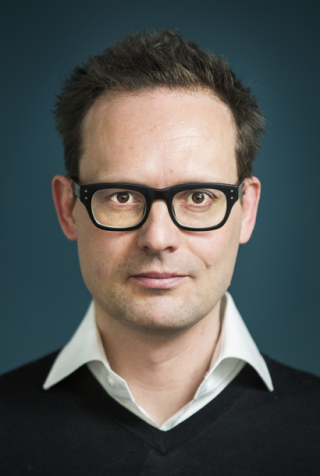
Maarten Van Alstein, PhD is a senior researcher at the Flemish Peace Institute, an independent research center for peace and conflict studies linked to the Flemish Parliament, Brussels, Belgium. Maarten’s research focuses on peace pedagogies, conflict transformation in educational contexts and violence in modern history. (https://vlaamsvredesinstituut.eu/en/teammember/dr-maarten-van-alstein/)

